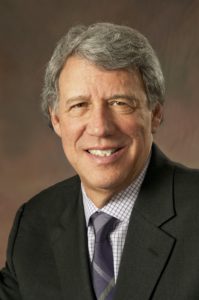
At this panel, we ask just how “free” is free speech? How do we protect space for dissent? From “gag rules” prohibiting abolitionist views on the congressional floor to anarchists and communists being deported or imprisoned for sedition; and from obscenity laws to women’s right to birth control, Americans have often pushed the boundaries of politically acceptable speech, and faced robust resistance.
At this event historians Brett Gadsden, Barbara Krauthamer, Claire Potter, and Geoffrey R. Stone discuss catalytic moments where strident expressions of political thought, widely perceived to be anti-democratic in their own place and time, provoked new strictures
MODERATOR
 Brett Gadsden is Associate Professor of African American Studies and History at Northwestern University and a historian of 20th century United States and African American history. His first book, Between North and South: Delaware, Desegregation, and the Myth of American Sectionalism, (University of Pennsylvania Press, 2012) chronicles the three-decades-long struggle over segregated schooling in Delaware, a key border state and important site of civil rights activism, education reform, and white reaction. His manuscript-in-progress, titled “From Protest to Politics: How African Americans Transformed the Presidency” explores the set of historical circumstances that brought African Americans into consultative relationships with presidential candidates and later into key cabinet, sub-cabinet, and other important positions in the Kennedy, Johnson, and Nixon administrations and opened to them unprecedented access to centers of power in the federal government. He is also the recipient of fellowships and grants from the John F. Kennedy and Lyndon B. Johnson Presidential Libraries, National Academy of Education, Spencer Foundation, Smithsonian Institution, American Historical Association, Hagley Museum and Library, and Delaware Heritage Commission.
Brett Gadsden is Associate Professor of African American Studies and History at Northwestern University and a historian of 20th century United States and African American history. His first book, Between North and South: Delaware, Desegregation, and the Myth of American Sectionalism, (University of Pennsylvania Press, 2012) chronicles the three-decades-long struggle over segregated schooling in Delaware, a key border state and important site of civil rights activism, education reform, and white reaction. His manuscript-in-progress, titled “From Protest to Politics: How African Americans Transformed the Presidency” explores the set of historical circumstances that brought African Americans into consultative relationships with presidential candidates and later into key cabinet, sub-cabinet, and other important positions in the Kennedy, Johnson, and Nixon administrations and opened to them unprecedented access to centers of power in the federal government. He is also the recipient of fellowships and grants from the John F. Kennedy and Lyndon B. Johnson Presidential Libraries, National Academy of Education, Spencer Foundation, Smithsonian Institution, American Historical Association, Hagley Museum and Library, and Delaware Heritage Commission.
PANELISTS
 Barbara Krauthamer is Dean of the College of Humanities and Fine Arts at the University of Massachusetts Amherst, where she is also professor of History. She is the author of multiple books, including, Envisioning Emancipation: Black Americans and the End of Slavery, co-authored with Dr. Deborah Willis. This book received numerous accolades, most notably the 2013 NAACP Image Award for Outstanding Literary Work in non-fiction. She is currently working on a book about enslaved women’s efforts to liberate themselves during the era of the American Revolution. She has received numerous grants and fellowships, including funding from Yale University’s Gilder Lehrman Center for the Study of Slavery, Resistance, and Abolition; Stanford University’s Research Institute for the Comparative Study of Race and Ethnicity; the Institute for Historical Studies at the University of Texas Austin; and the National Endowment for the Humanities. In 2017 the Association of Black Women Historians awarded her the Lorraine A. Williams Leadership Award in recognition of her scholarship and work to create opportunities for Black women in higher education.
Barbara Krauthamer is Dean of the College of Humanities and Fine Arts at the University of Massachusetts Amherst, where she is also professor of History. She is the author of multiple books, including, Envisioning Emancipation: Black Americans and the End of Slavery, co-authored with Dr. Deborah Willis. This book received numerous accolades, most notably the 2013 NAACP Image Award for Outstanding Literary Work in non-fiction. She is currently working on a book about enslaved women’s efforts to liberate themselves during the era of the American Revolution. She has received numerous grants and fellowships, including funding from Yale University’s Gilder Lehrman Center for the Study of Slavery, Resistance, and Abolition; Stanford University’s Research Institute for the Comparative Study of Race and Ethnicity; the Institute for Historical Studies at the University of Texas Austin; and the National Endowment for the Humanities. In 2017 the Association of Black Women Historians awarded her the Lorraine A. Williams Leadership Award in recognition of her scholarship and work to create opportunities for Black women in higher education.
 Claire Potter is a Professor of History and co-Executive Editor of Public Seminar at The New School for Social Research in Greenwich Village, New York City. The author of two books and two edited collections, she has also written for The New York Times, The Washington Post, The Chronicle of Higher Education, The Guardian, Politico, Yale Review, AlterNet, Dissent, Eurozine, The Village Voice, Inside Higher Education, and Jacobin. Her most recent book is Political Junkies: From Talk Radio to Twitter, How Alternative Media Hooked Us on Politics and Broke Our Democracy (Basic Books, July 7, 2020), listed by the New York Public Library as an “Essential Read” for the 2020 election. She is currently writing a biography of journalist and radical feminist activist Susan Brownmiller.
Claire Potter is a Professor of History and co-Executive Editor of Public Seminar at The New School for Social Research in Greenwich Village, New York City. The author of two books and two edited collections, she has also written for The New York Times, The Washington Post, The Chronicle of Higher Education, The Guardian, Politico, Yale Review, AlterNet, Dissent, Eurozine, The Village Voice, Inside Higher Education, and Jacobin. Her most recent book is Political Junkies: From Talk Radio to Twitter, How Alternative Media Hooked Us on Politics and Broke Our Democracy (Basic Books, July 7, 2020), listed by the New York Public Library as an “Essential Read” for the 2020 election. She is currently writing a biography of journalist and radical feminist activist Susan Brownmiller.
 Geoffrey R. Stone is the Edward H. Levi Distinguished Professor of Law at the University of Chicago. After serving as a law clerk to Supreme Court Justice William J. Brennan, Jr., Mr. Stone joined the faculty of The University of Chicago Law School in 1973. In the years since, he has served as Dean of the Law School (1987-1994) and Provost of the University (1994-2002).
Geoffrey R. Stone is the Edward H. Levi Distinguished Professor of Law at the University of Chicago. After serving as a law clerk to Supreme Court Justice William J. Brennan, Jr., Mr. Stone joined the faculty of The University of Chicago Law School in 1973. In the years since, he has served as Dean of the Law School (1987-1994) and Provost of the University (1994-2002).
Mr. Stone is the author or co-author of many books on constitutional law, including Social Media, Freedom of Speech, and The Future of Our Democracy (forthcoming 2022); National Security, Leaks and Freedom of the Press (2021); Democracy and Equality: The Enduring Constitutional Vision of the Warren Court (2020); The Free Speech Century (2018); Sex and the Constitution (2017); and Perilous Times: Free Speech in Wartime (2004). Mr. Stone’s books have received many national awards, including the Robert F. Kennedy Award for the Best Book of the Year, Harvard University’s Award for the Best Book of the Year in Public Affairs, and the American Political Science Association’s Award for the Best Book of the Year in Political Science.
PARTNERS
 |  |
